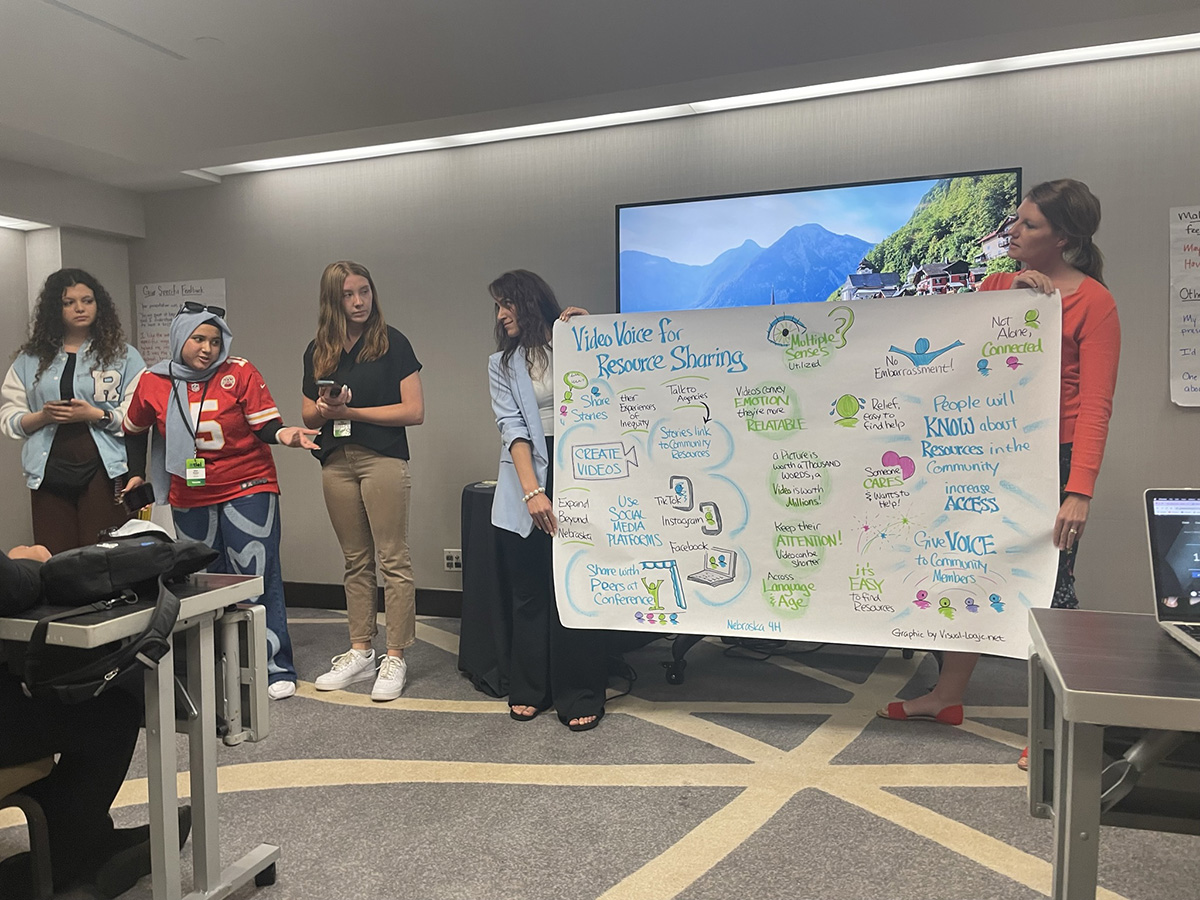
By Emily Gratopp, MS, Extension Educator in Lancaster County
Nebraska Extension in Lancaster County had the opportunity to take three youth and a community partner to the national True Leaders in Equity Institute (TLEI) in July. The 4-H True Leaders in Equity team is planning a project entitled, “Videovoice: Stories of Health Inequities.”
THE YOUTH-ADULT HEALTH EQUITY TEAM
The Lancaster County-based team consists of Emily Gratopp (Extension Educator), Shelan Rasho (an employee of Friendship Home and a Yazidi migrant) and 4-H youth leaders Kearah, Nansi and Wesal.
A few members of the team were youth participants of last year’s local Photovoice project focused on immigrant and refugee mental health led by last years’ TLEI 4-H youth leaders. After participating in the Photovoice project, they volunteered to be leaders this year and wanted to swap photos for more popular, engaging videos to share personal, health-based messages that evoke social change. The youth are passionate about finding unique ways to address health inequities, especially those inequities they see their friends, family, neighbors and community members experiencing.
TRUE LEADERS IN EQUITY INSTITUTE
National 4-H Council hosts TLEI annually in Bethesda, Md., which is near Washington D.C. The national Well Connected Communities inititative sponsored the Nebraska team to attend. The mission of TLEI is to prepare youth-adult teams to be change agents within the Cooperative Extension System and work to create more welcoming and inclusive environments.
TLEI is a training and leadership opportunity that challenges participants to craft and champion equity-related projects that grow 4‑H in their communities. At the event, the Nebraska youth were delighted to hear from a lineup of speakers as diverse as they are. They took initiative to connect with the speakers and are now forming international networks. One Nebraska youth capitalized on an invitation presented by one of the speakers and is now a member of the national Access, Equity and Belonging Committee associated with the National 4-H Council.
VIDEOVOICE PROJECT PLANNING
In addition to the excellent professional development opportunities, TLEI provided time for the Lancaster County team to plan, present and receive feedback on their upcoming health equity project.The team will use Videovoice to inspire action to eliminate health inequities by capturing and sharing health equity stories. Videovoice is a health advocacy and promotion methodology wherein participants use participatory videography and interviewing techniques to identify issues of concern, communicate knowledge and advocate for community health.
In partnership with a local videographer’s expertise, the team will soon begin their 9-month long project journey with the youth leaders sharing their own experiences of health inequities. These initial videos will serve the project’s goal of reducing health inequities while also assisting in recruiting additional community members to share their health inequity experiences.
All health inequity videos will be linked to various solutions, either as they happened or potential future solutions based on existing or needed community resources. The purpose of the project is to make health inequities and potential solutions/community resources real and relatable with an empathy-evoking storyline based on real community members' needs and stories shared in an easily-consumable format.
CAN YOU HELP US?
The target audience for both the Videovoice participants and the content are low-income individuals and young families ages 15–24. The target story includes a health inequity experienced personally by the storyteller that also includes a message of hope in successfully using community resources to address the health inequity. If you have connections or resources to support this work, or if you or someone you know has health inequity experiences or stories to share, please reach out to Emily Gratopp at emily.gratopp@unl.edu.